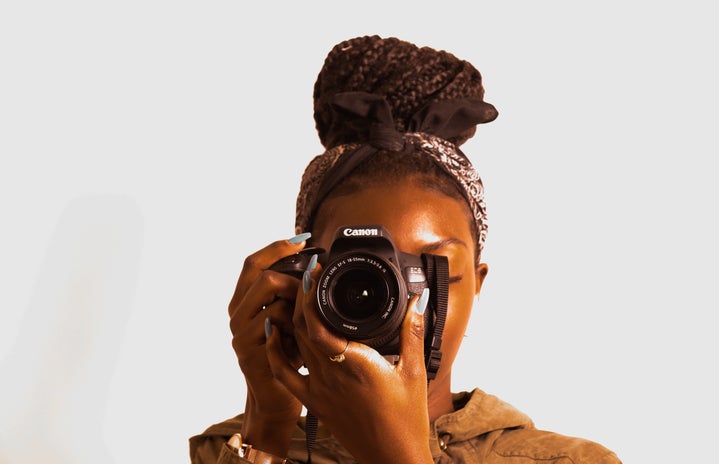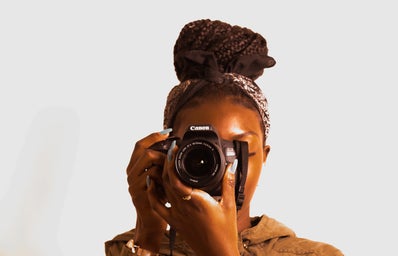They say beauty lies in the eye of the beholder, but what happens when the beholder itself is our worst critic? A reflection of ourselves through the eyes of an audience, which we deem as the truth, even if it’s just a crooked mirror of insecurities. In this highly digitalized era, people are more susceptible to the adverse consequences of participating in social media. If you’ve ever logged onto apps like Instagram, there is a high chance you’ve stumbled upon the world of social media influencers. These people always seem to look happy and flawless, with their perfect lives and perfect looks. However, the word ‘perfect’ has different connotations when it comes to the reality of picture-perfect moments.
What you see isn’t always what you get when it comes to your favorite celebrities and influencers posing for the camera. For example, Sonam Kapoor, in one of her Instagram posts, gave a detailed account of what goes into the making of Bollywood women always looking so perfect. She explained, “There are more ingredients in my face packs than in my food. There’s a team dedicated to finding me flattering outfits. After all that, if I’m still not ‘flawless’ enough, there are generous servings of Photoshop.” Celebrities look perfect in advertisements and pictures because their literal objective is to sell, whether it’s an image or a product. Magazines were thus critiqued for promoting unattainable beauty standards. However, with the advent of easy editing apps like FaceTune and Snow, beauty is commercialized more than ever before, morphing itself into a huge societal problem.
These editing apps have made it possible to achieve the ‘ideal’ body and face. Maybe not in real life, but at least in pictures. Social media influencers have been most notable for openly using these apps. Their Instagram feeds are the very definition of ‘picture perfect’ and while they may be aesthetically pleasing to look at, such photoshopped images can have drastic effects on their impressionable audience. Thus, a new cycle begins, wherein a young girl/boy falls victim to the facade of social media and desires to look as beautiful as someone else’s face or body, which may not even be real. We’ve all heard that story before, but just how bad is it?
On a personal level, you might be thinking, “Why should I care about what another person posts on their social media account? If it’s just temporary blemishes they’re fixing, what’s the problem?” Using filters and fixing a few temporary blemishes now and then seems perfectly reasonable, but when the gap between the person you really are in real life and the person you look like on social media increases to an extent where you’d rather prefer the person on the computer than the person in the mirror, it turns into a problem which should never be normalized. In our continuous attempts to look like a better, more beautiful version of ourselves, we could lose sight of who we really are in the process and believe the lie we’ve created for ourselves. The bitter truth is that when we change our features through the use of photoshop just for the validation of a social media audience, it means we haven’t accepted ourselves the way we should. Reconstructing social images of ourselves we can’t get out of will only fuel our insecurities.
It is also important to note that it is not okay to shame those who use Photoshop or other apps. Influencers who photoshop their images get called out for not looking like how they do in photos because they are placed on such a high pedestal – the same pedestal that pressurizes them to look perfect so they resort to morphing their bodies and features in pictures. Society has forced unattainable beauty standards upon anyone willing to look and listen, so it takes all of us, at our own individual levels not to conform to these standards. We should be aware that having a different body or different features than the heavily edited photos we see online, is okay. Changing the way we look should only be for ourselves, never for the world.
The means to project our everyday life through social media can leave us with an unhealthy mindset that constantly wants to portray our best moments while looking our very best for other people’s validation. In a world that feeds on so many of our insecurities, we must try reclaiming power from all the things which make us unwilling to accept the way we look. Beauty lies in the eye of the beholder, but if you allow anyone other than yourself to be the beholder of your own beauty, you give power to the world to dictate your own happiness. So remember to be kind, dear reader, not just to others but also to yourself, because being rooted in reality is always better than putting on a mask.


